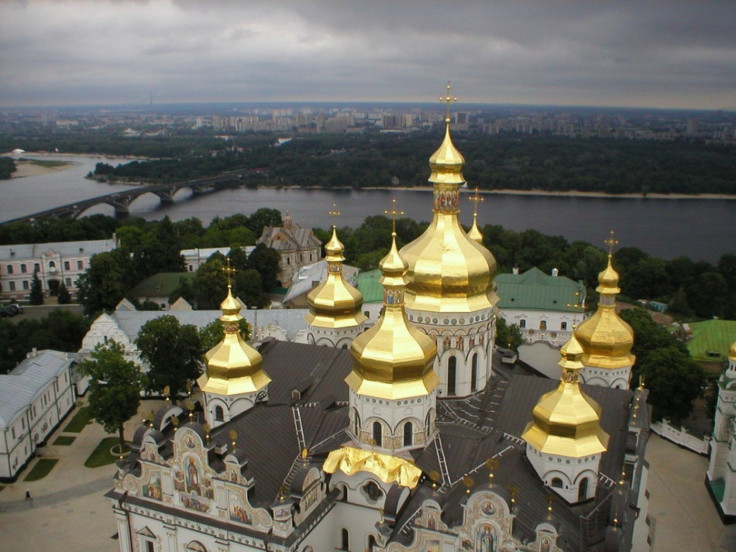Ukraine Elections Deemed Unfair, But Early Results Show Ruling Party Win

Early election results in Ukraine show the ruling Party of Regions poised to take control of the parliament.
That’s good news for Ukrainian President Victor Yanukovych, who leads the pro-Kremlin bloc. But opposition leaders who accuse the president of corruption and unjust consolidation of power are determined to mount a united resistance.
International observers, meanwhile, are questioning the legitimacy of the national poll.
"The elections were characterized by the lack of a level playing field caused primarily by the abuse of administrative resources, lack of transparency of campaign and party financing and lack of balanced media coverage," said the Organisation for Security and Cooperation in Europe, or OSCE, according to Reuters.
Bloomberg reports that early counts from Ukraine’s Central Electoral Commission showed Regions with nearly 35 percent of the vote. The opposition, united under the pro-West Batkivshchyna party, is expected to come in second with about 22 percent. The Communist Party, which tends to ally itself with Regions, came in third with just under 15 percent.
Two smaller opposition parties also made a fair showing in this election: UDAR, a pro-West bloc led by heavyweight boxing champion Vitaly Klitschko, and Svoboda, a far-right nationalist party led by Oleh Tyahnybok.
A likely coalition between the Party of Regions and its allies should have no problem achieving majority control over the legislative branch with 226 of the 450 available seats.
But opposition parties are making plans to band together and blunt the growing power of the president and his allies.
“We’ll sit and discuss joint actions,” said Klitschko, according to Bloomberg. “We see possible cooperation with those forces that support a democratic, European future for Ukraine. I reiterate: We won’t cooperate with the Party of Regions or the Communists."
The election was in large part a referendum on a central conflict within the former Soviet state: whether Ukraine should ally itself with Russia or the West and which of these alliances would best support economic growth in a nation where slow economic growth is increasingly threatened by the falling price of steel, a major export.
The historical relationship between Russia and Ukraine is a tangled one, especially with the strong economic links related by their natural gas trade. Russia is a major producer of the resource, but it relies on Ukrainian pipelines to get the product out to market. This economic interdependency has strained already tense relations as Ukraine weighs long-held alliances against modern economic imperatives.
The knotty situation came to a head after Ukraine's Orange Revolution of 2004 and 2005, when pro-Western President Viktor Yushchenko and Prime Minister Yulia Tymoshenko, who lead the Batkivshchyna party, were elected and the relationship between Moscow and Kiev deteriorated.
But in 2010, Yanukovych was elected to the presidency. The Kremlin-allied politician from eastern Ukraine took strides to dial back on Ukraine's latest westward pivot, and Tymoshenko was jailed on corruption charges involving a Russian gas deal she had made as prime minister. The popular opposition figure is still being detained; she voted from jail this weekend, but her absence on the campaign trail dealt a blow to the opposition’s chances.
In the buildup to the election, Yanukovych curried favor with key segments of the electorate by promoting the use of the Russian language in schools and courts where Ukrainian is not widely spoken and by increasing public sector wages along with welfare allocations.
Yanukovych’s 2010 election to the presidency was judged fair by Western observers, but the OSCE warns that this poll was more suspect.
“Certain aspects of the pre-election period constituted a step backward compared with recent national elections,” it said in a statement.
But ruling officials have brushed off the criticism.
“Free and democratic elections have been conducted,” said Prime Minister Mykola Azarov on the Regions website, according to Bloomberg. “We’ve won in an absolutely honest fight.”
© Copyright IBTimes 2024. All rights reserved.












